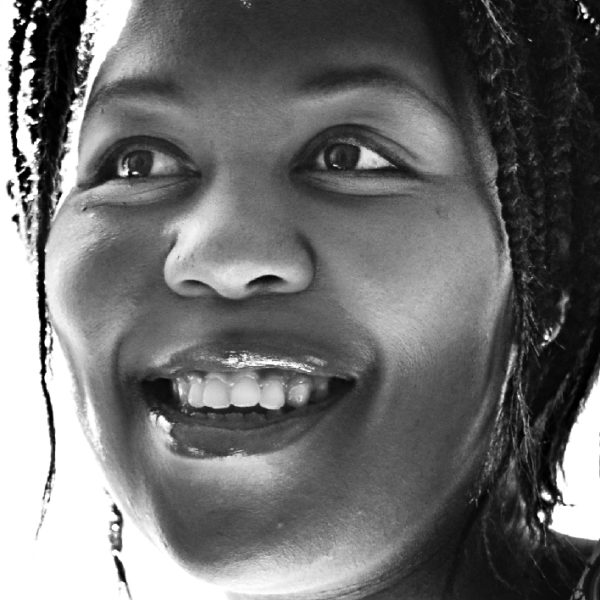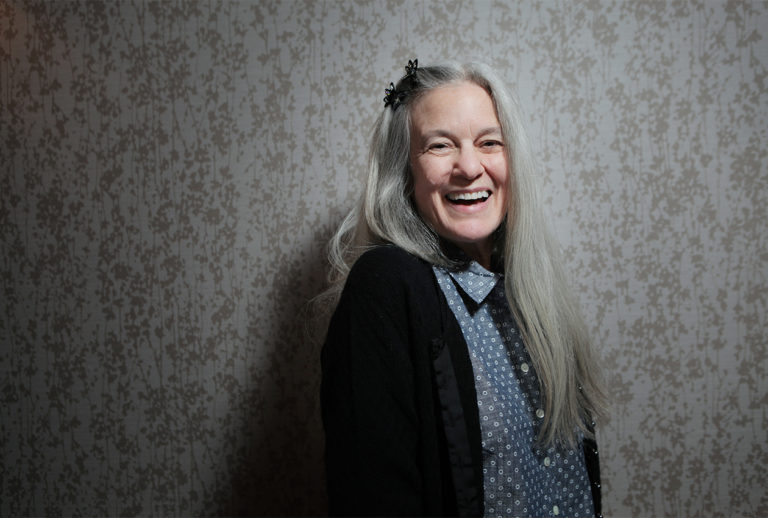Dark Browns, Peaches, and the Wisdom of Children
My husband is Australian and I am South African. We met just after the end of apartheid when the idea that my country could overcome centuries of violence and hatred seemed within reach.
My previous boyfriends had all been similar to me. In high school, my love interests had been middle-class African boys who studied hard and had straight teeth; when I went to college in the United States, I stuck to the same profile, except that they were African American.
When I finished my undergraduate degree, I headed back home to South Africa. Finding a boyfriend was the last thing on my mind. I had grown up all over the world — from Zambia to Kenya to Canada — as the child of political exiles. When South Africans voted in 1994, I had cast my vote in Chicago at the South African consulate. My joy at being finally able to vote alongside millions of black South Africans was tempered by the fact that I was in America and would not be finished with my degree for another two years. I couldn’t wait to get home.
So it was a surprise to everyone (myself included) when I fell in love with Simon — a blue-eyed, square-jawed Aussie bloke.
When we first started dating I was cagey. I had been an activist in college and I wanted to continue down that path. Having a white lover didn’t quite fit the script. I didn’t think he would “get” many aspects of my experiences as a black woman in a racist society. I didn’t want to explain racism and sexism all the time, and I didn’t know if I had the patience to argue over many of the fundamentals that frustrate black people and flummox white folks.
We got together then broke up, then got back together again. The separation had made it clear: we were alike in all the ways that counted, and different enough to ensure that we would never be bored. Like me, he was the oldest of three children, and, like me, he was both a hopeless romantic and a pragmatic idealist. He believed in fixing the things about the world that were broken, and he had a game plan for what that might look like. We agreed that we’d figure the race stuff out as we went along.
We met when I was 23; seventeen years and two kids later, we are still together. The “race stuff” isn’t any more clear than it was all those years ago, but we have muddled along.
I have continued my activism. In recent years, I have written extensively about white privilege — white male privilege in particular. My writing comes from a place of frustration and empathy. I have chosen to love a white man, but that doesn’t give him, or any other white men who exert their privilege unjustly, a free pass. In South Africa, as elsewhere, we’ve all got to do the work of changing the rules of the game: no exceptions.
Having children has brought its own dynamics. Our kids are black of course, but they are also fair-skinned. Being black will disadvantage them in many settings, just as being fair-skinned will privilege them in relation to darker-skinned black people in many contexts. This complexity is part of the muddle that we have elected to live with.
Our eldest daughter is now six. Like all children, she is learning to ascribe social meaning to different skin tones. We are in the throes of “living the questions” that Rilke exhorts us to do.
There are many, many questions, some of which have no answers, and some of which she is not yet ready to hear. Some of the questions she asks remind me — in their candor and directness — about the responsibility I have signed up to, in deciding to be the mother of this particular child. They push me to reach for wisdom in unusual places, in ways that are not ordinary. She forces me to understand with my heart.
The skin color conversations began a few moths ago. The first one began with a set of closely observed declarations:
“You know Mama, normally moms and dads are the same color. But you are dark brown and Daddy is peach.” Her voice trailed off. She wasn’t exactly sad, but she was contemplative. “No one else has a family like ours.”
“That’s not true,“ I responded, listing all the kids we know whose parents are brown and peach. “Think about Big Sankie,” I suggested. “And William and Ylva are also peach and brown.”
I had to think on my feet. I decided that pointing at other examples of people who are like us would show her that we actually aren’t that unusual.
“Yes but everyone else isn’t like that,” she pushed back.
Kids have this terrible habit of insisting on the truth. My intellectual strategy of providing a factual critique of her statement, “No one else has a family like ours,” had fallen flat. Her wizened six-year old eyes had seen through my words.
She wasn’t interested in just the facts. She wanted to know a little bit more about our small family, and how we fit in the big messy world. She was asking why I chose her father and why he chose me, and how, in a world in which so few other “brown” and “peach” people end up making choices to build families together, we had done just that.
I, on the other hand, was preoccupied with race and what it meant for our family, and for our broken society. So before anything else, I wanted to correct the terms that she was using. I wanted to tell her that people are actually Black and White, not “peach” and “brown.”
Her school had been insisting on using these more colorful words in an attempt to soften the reality of racial categories in a country that is still coming to terms with its apartheid past. I had been meaning to find some time to sit her down and tell her that apartheid may have ended but we are still black and white — nicely of course.
Since she is six, breaking such news requires delicacy. Also, as Simon reminds me when we talk about this exchange later, she isn’t asking for a treatise on race. She is asking about who we are and race is part — but not all — of what she needs to understand in order to “get” us. I understand his point, but I also know that somewhere hidden in her question there are answers about race to which we will one day have to speak.
This jumble of thoughts is running through my head as we pull up to the house. Before I can talk, she gets out of the car and jumps onto her bike. I am glad. For once, I have no words and I have no idea where to begin.
A few months later (just days before I turn forty-one), my daughter makes a list called “The Presents Everyone in the Family Wants.” Her father wants a boat, her brother wants a robot, and she wants a pony.
She walks up to me officiously.
“It’s actually your birthday that’s coming up Mama, so really you should have answered first. So, ok, what do you want?” she asks.
Suddenly it is clear.
“A wedding,” I say.
She squeals. “A wedding? But you’re already married to Daddy!”
“I know, but you always complain that we got married before you and your brother were born. So this wedding is for you guys.”
She is delighted.
“Where should we do it?” she asks.
“I’m not sure. What do you think?” I ask her.She doesn’t hesitate. “On the beach. That way, we can be sea princes and princesses.”
So, we are planning a wedding. It will take place in the next few weeks before the Australian summer ends. She and I will be sea princesses and her brother and father will be princes and no one else will be invited.
At the ceremony, we will be blessed by the wonder and truth and singularity of our tale. We will look at one another and I may cry, remembering the time after Simon and I had just met and before we were lovers. We sat on a verandah at a restaurant, and I slid my bare feet onto his under the table because everyone was staring at us. It seemed like the most private way to say “I love you” without actually having to say it.
Our son may pat me on my back and say, ‘It’s okay Mama,” as he often does, speaking in a whisper from the bottom of his wide-open three-year old heart. And my little sea princess will clasp my hands and look at me as though we are sharing a secret.
And when they are grown up, when the long song of life has been sung, when my husband and I are old and our children are grey, I hope that they will remember our wedding as a testament to our family and it’s special dark brown and peach weirdness. I hope that she can look back on her life and understand that we tried to respond to the questions I could not answer that day in the car — simply by being. I hope that the years whisper to them both:
“Yes. You were right. No one else has a family like ours. Not because we are dark brown and peach, or black and white, but because we are us.”

